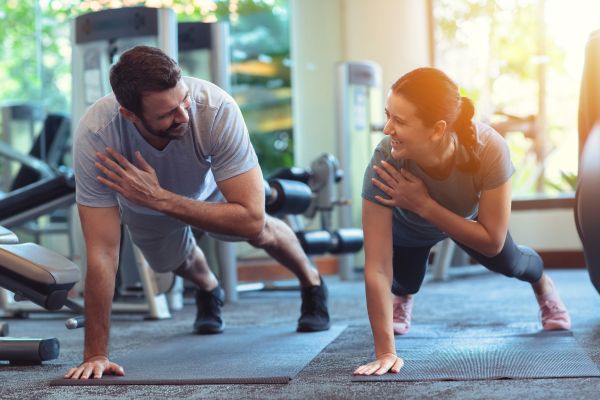
A strong core benefits everyone, whether you’re an athlete or office worker. Beyond the abdominal region, your core assists with and supports movement, from how you sit to your form during exercise. Learn more about the core region and the benefits of strengthening these muscles.
What Is Your Core?
The core region starts with your abs and extends to your back. Most movements start from or passively engage the core, as these muscles connect the lower and top portions of your body.
The muscles involved include your:
- Abdominals, which assist with movement, support your spine and protect your organs
- Obliques, which are located on the sides of your body and assist with rotation
- Quadratus lumborum, located along the back from your lower ribs to your pelvis
- Glutes, which also assist with hip rotation
- Pelvic floor
- Erector spinae or muscles surrounding your spine
- Diaphragm
Weaker muscles in the core region can influence how the rest of your body functions. You’re more likely to slouch, have difficulty maintaining balance and be at higher risk for falls.
Why Build a Stronger Core
It’s recommended to build a stronger core for the following reasons:
- Lower Back Support: Individuals start to experience pain in this area with age, especially if they carry extra weight. Strengthening this area has broad-reaching benefits in terms of posture, balance and pain management.
- Greater Flexibility: Targeting the core helps increase flexibility and stability around the spine, which supports posture and lowers injury risks as you get older.
- Better Balance: A fall injury can alter your quality of life. Strengthening the core muscles helps improve balance and coordination, which lowers risks for falls and potential injuries.
- Improved Posture: Poor posture often results from sitting in an awkward position. These habits can weaken core muscles and affect your form. Focusing on your core makes you less likely to slouch, places less strain on your spine, and helps manage back and neck pain.
- Better Form During Exercise: Since the core connects your body’s upper and lower halves, strengthening this area better aligns your pelvis, hips, lower back and shoulders, helping these bones and muscles move together.
- Greater Stability and Coordination: You might not notice these effects at a younger age but stability and coordination influence your ability to hold objects, climb stairs and perform activities of daily living. A weak core can lead to various muscle and back injuries.
- Improving Activities of Daily Living: A stronger core means you sit with more support, are less likely to slouch and will have an easier time taking care of yourself with age.
- Lowered Injury Risks: Individuals are less likely to experience injuries involving the lower extremities as they age.
Looking to strengthen your core? Participate in our strength and conditioning program! To learn more, contact Integrated Rehab today.

